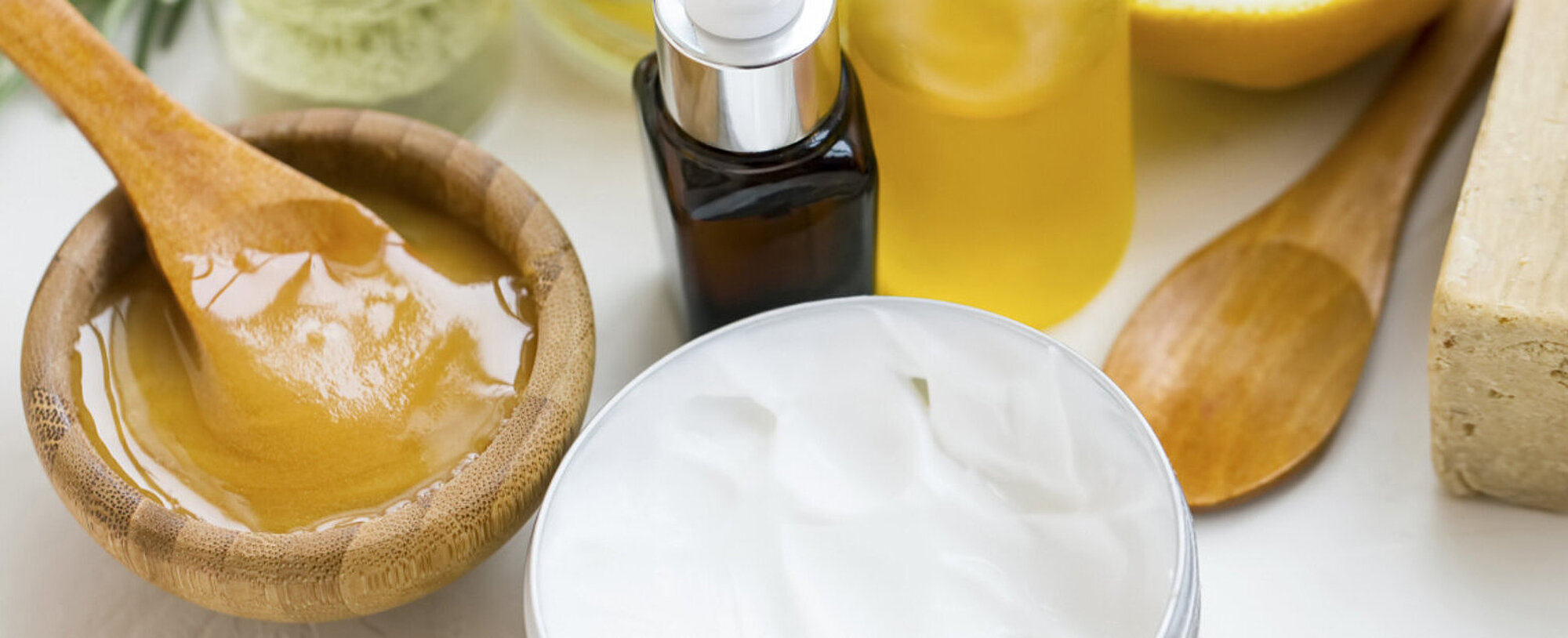The rising level of environmental consciousness in society is also causing a rethink in the cosmetics segment. For more and more end consumers, natural cosmetics and vegan creams and shower gels developed without animal testing have long been a proven alternative to conventional care products that often contain animal ingredients. As a result, ever more cosmetics manufacturers are following these criteria – but there are several aspects to consider.
Are you looking to add vegan care products to your production or even switch over to vegan products entirely?
- Animal ingredients are common in conventionally manufactured cosmetics, for instance the natural protein collagen in creams or keratin in shampoos, which is derived from sheep wool. Vegan skin and hair care products are free from all animal ingredients or ingredients produced by animals, such as honey, beeswax or milk proteins.
- Manufacturers should ensure that their ingredients meet these requirements and that no products of animal origin are used in any stage of production.
- The production machinery should only be used for these vegan ingredients; if animal products are processed, the machinery should be cleaned thoroughly afterwards.
- Although the EU does not have a legal definition of the terms “vegan” or “vegetarian”, manufacturers can request “vegan statements” for the ingredients that they work with.
- It is important to note that this does not refer to the conformity of the product with a “vegan” label. The manufacturer is responsible for the ingredients used in its cosmetic products.
Are you looking to add natural cosmetics to your portfolio or even focus on them entirely?
The term “natural cosmetics” is not protected. As such, various degrees of “naturalness” are possible when it comes to ingredients in cosmetic products. As a rule, primarily natural ingredients are used when manufacturing natural cosmetics (which can also be of animal origin). These should be obtained and processed as carefully as possible while also preserving resources.
- The most important natural cosmetics standards are COSMOS and NATRUE; many ingredients from the BTC portfolio are registered here.
- The ISO 16128 standard contains criteria for natural ingredients and products. BTC provides manufacturers with all the information they need for the ISO and natural cosmetics standards.
- BASF has examined its personal care portfolio in accordance with ISO criteria and calculation rules, thereby giving cosmetics manufacturers a better overview.
Are you looking for formulation ideas for sustainable products?
The Zero Waste collection from BTC presents a selection of innovative basic formulas, which were developed using 45 alternative ingredients manufactured by BASF. This inspires manufacturers to create new vegan or natural products.
Three examples from BTC Europe’s Zero Waste collection
- The COSMOS-compliant conditioning polymer Dehyquart® Guar HP ensures excellent wet and dry combing properties in the Lavender Shampoo Concentrate.
- The natural polysaccharide Rheocare® XGN is a vegan material that complies with COSMOS and NATRUE; it gives products including the Lavender Soap Bar, the Kiwi Peeling Stick and the Power Shower Powder the right rheological properties.
- Eumulgin® VL 75 is a COSMOS-compliant emulsifier that is processed when cold. It is often used in systems with low viscosity, such as Moroccan Oil Lotion DIY. It is also ideally suited to products that melt on the skin, such as the Solid Styling Bar or the Strawberry Melting Stick.
Let the Zero Waste collection inspire you to create further product ideas. Our BTC experts will be happy to advise you. The contact information of your local BTC contact is available in the Solution Finder and further information can be found on BASF’s Care Creation platform.


